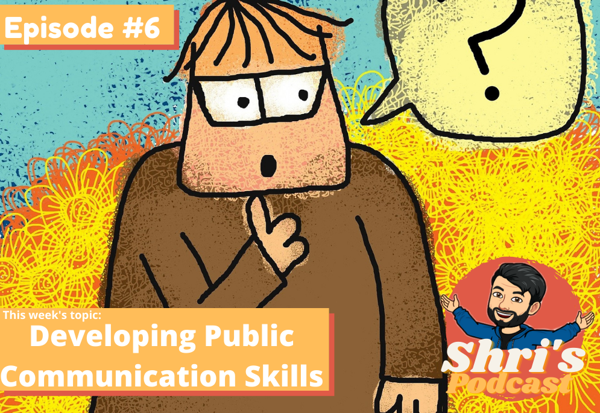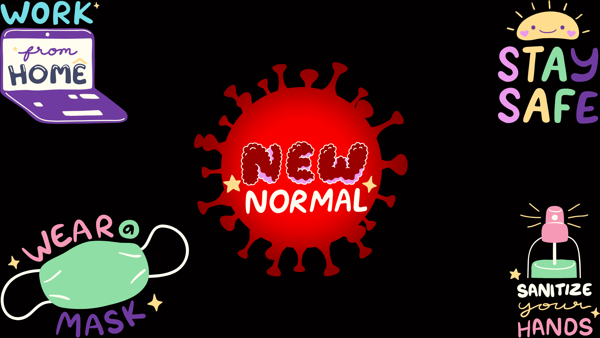This week’s topic: How to Start Working on Developing Public Communication Skills
It is said that the early humans, after finding food and shelter first, found ways of communicating next. That’s how important communication skills are. The ability to be able to communicate with another being and to tell them what you know and/or feel is the true gift that actually makes the human race as powerful as we are today. Imagine you knew a great deal about different things. Now, if you aren’t able to communicate it and tell others what you are thinking, is it even worth it? That’s exactly why communication skills are important. And notice, it is called communication skills and not just talking or gossiping. Communicating is indeed a skill. It has to be developed over the years, by practice and learning. Believe it or not, Communication is the easiest skill to learn, but the most difficult to master.
How to and where to start developing public communication skills?
1) The best way to start working on your communication, is starting from something small. Like say, family gatherings or talking to your friends confidently, and again mind you, not gossip. Have actual discussions. It could be on anything like sports, politics or just some favorite movie. The main thing here is to discuss sides with strong opposition. This has a really good psychological effect on your brain. When you discuss opposing viewpoints with your friends, it forces you to speak your opinions out loud because your introvertish brain thinks that these are your friends, meanwhile unknowingly developing your communication skills.
2) After you are confident enough to speak Infront of your friends and family, you are now psychologically ready. This means that whenever you hear a topic next time that you have strong views on, your will automatically get this urge to get up and speak. If you do, consider this as a golden opportunity and speak up. You will not be embarrassed at all. In fact, you will be proud of yourself later. Sometimes all you need is an adrenaline rush.
If you still feel that you cannot get up and speak, no issues, it happens to the best of the lot. But remember, the road from here will be a bit lengthy. Don’t give up.
3) Hereon, you will have to be confident. Utilize every opportunity you get to develop your communication skills. Start from something like small functions like club meets or birthday parties where there is a mix of kith and kin as well as strangers. Take up small tasks of going on the stage. Even if it is giving a bouquet of flowers to the Chief Guest of the day. This stimulates your brain into getting used to the audience. You can’t be nervous facing the same audience twice. Once you have done smaller things, you can move on to slightly more important things like giving a Vote of Thanks, or announcing the Guest of Honor. This will expose you to an audience. Since these are short amounts of time and most of it is on a piece of paper, you usually tend to do really well. This increases your confidence, making you want to do it more and more. The brain thinks you have mastered the art of speaking. It forces you to go up on stage and speak up, which is great, but hold up! Don’t respond to the urge reflexively.
4) You are now ready to go up on stage and communicate to an audience! Congratulations! Take a bow! You have worked hard to get to this phase. Now what? Is only having confidence enough? Will that make you a good communicator? No! absolutely not! You need to focus a lot on 2 more things, hereon. Content and Delivery.
· Content
This is a very crucial part of your talk, almost just as important as confidence, if not more. Memorizing the content of your talk, is the worst way of approaching it. This has a lot of effect of your delivery of the speech. The best way to rehearse content is by making bullet points of the main topics you wish to cover in your talk and then memorizing or writing them down. This makes sure that you only look at the bullet points and then evaluate these bullet points. This not only gives you scope of impromptu improv, but also keeps your head towards the audience rather than your notes, enabling a more personal connection between the audience and you. Always research from correct and trustable sources for your content and double verify facts or else, you might end up looking like a fool on stage, which is not what you expect during your first big speech.
· Delivery
Delivery is what sets a speaker aside from every other speaker. Every person has his own style of delivering his/her speech. The essence her, is being unique. Just by trying to copy another speaker directly, you may get the attention and fame, but that will never be unique. It won’t be yours. It won’t have your touch. So, the best practice is to develop a delivery style. It doesn’t necessarily have to be the best, it will develop over the time. You should understand that this is a speech and not a recital or a reading session. You should take pauses and use your hands to express yourself. You should walk around the stage a little, engaging different parts of the audience. This too takes time and confidence, but with enough experience, you will get there.
Communication is an art. It isn’t something that you can pick off of YouTube or read off of a text-book. It is something that you have to develop over the years and then practice everyday and learn from other great speakers and orators. Again, communication is a skill that’s easy to learn, but hard to master. It sometimes takes years before you can get up there and give a great speech where you are satisfied that you did a great job up there. Until then, Don’t give up, ever.
Shri.





0 Comments